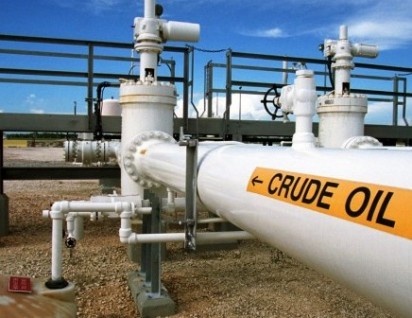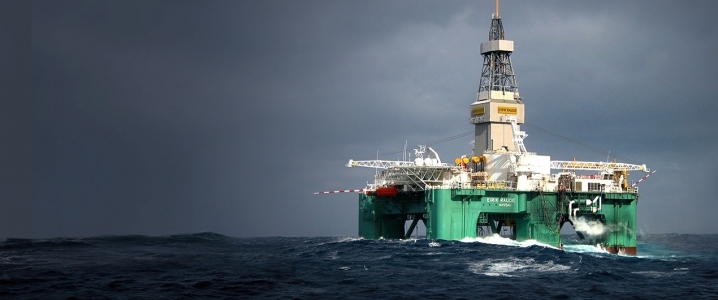AFTER over four decades of investing huge funds in exploration, the President, Major General Muhammadu Buhari (retd.), finally realised his dream of crude oil extraction in the North last week.
The inauguration of drilling operations at the Kolmani River Oil Field that straddles Gombe and Bauchi states and with estimated reserves of over one billion barrels of crude potentially diversifies oil production from the Niger-Delta and brings the country closer to its ambition of growing crude oil reserves to 40 billion barrels.
But amid the euphoria, Buhari and other stakeholders should place two issues on the front-burner: first, avoid the mistakes committed in the Niger-Delta where oil exploration and extraction have devastated the environment and the host communities’ means of livelihood; second, now that oil production is shifting to other sub-regions, and persistent adverse economic headwinds remind everyone that all parts of Nigeria have a diversity of minerals, there should be no further delay in restructuring the country to allow for resource control and true federalism.
According to the Nigerian National Petroleum Company Limited, the Kolmani project has attracted $3 billion in investment and includes an oil refinery, a gas processing unit, a power plant, and a fertiliser factory. For Buhari, this is an ambition fulfilled. As the federal commissioner (minister) for petroleum (1976-78) when the search for oil in the North started, and as military head of state (1984-85), he had made it a priority. He reignited the quest immediately on assuming office as elected president in 2015, ordering the NNPC to intensify exploration there.
At a point, the government deployed $340 million, and an additional N27 billion, searching for hydrocarbons in the Lake Chad Basin where the NNPC had concentrated its efforts for 40 years.

But Nigeria must not repeat or worsen its “Dutch disease” affliction. Investopedia says the term is primarily associated with the new discovery, or exploitation of a valuable natural resource such as oil, and the negative repercussions it can have on the economy of a country.
Nigeria presents a classic case. Oil exploitation has distorted the national economy, created an unhealthy over-reliance on petrodollars, created a rentier economy and promoted corruption. While oil revenues have boosted per capita income on paper, they have in reality stupendously enriched only very few, but pauperised the majority. The oil addiction has shifted emphasis away from agriculture and mining and extraction has caused horrendous environmental degradation. Criminal activities have arisen around the oil economy; theft and vandalism, illegal bunkering and refining, piracy, and cultism.
The government should not entrench this. The focus should be on building infrastructure, eradicating poverty, funding education, and diversifying the economy. Instead, oil revenues should be invested in infrastructure, reserves and savings, and in other productive sectors of the economy.
The North’s comparative advantages in agriculture and mining should be leveraged to eradicate the widespread poverty ravaging the region. Few oil-producing countries in the Third World with leadership foresight such as Saudi Arabia, the United Arab Emirates, Qatar, and Kuwait have effectively managed their oil resources by channeling petrodollars into development projects and poverty-eradication.
Others afflicted with poor leadership like Nigeria and Angola have poor human development indices, suffer insurgencies, poverty and unbridled corruption. Oil addiction stifles diversification. Though accounting for over 90 per cent of foreign earnings and over 70 per cent of all public revenues, oil and gas contribution to Nigeria’s GDP declined from over 30 per cent in the 1970s to just 6.33 per cent in the second quarter of 2022, said the National Bureau of Statistics. In Venezuela, the oil sector dependence wiped out other export sectors.
But wiser leaders in Norway separated its economy from oil dependence and set up a Sovereign Wealth Fund “to ensure responsible and long-term management of revenue from oil and gas resources so that this wealth benefits both current and future generations.” The fund is worth $1.3 trillion today.
But more important to the continued viability of the country is the imperative of returning Nigeria to true federalism. The reality of crude oil on which the country’s visionless leaders have been fixated for over four decades, and the availability of 44 mineral types available in different quantities and diversities in the 36 states and the Federal Capital Territory, should be instructive. The fear that some parts of the country would be disadvantaged with resource control and true federalism is misplaced.
Apart from the current nine oil producing states, oil production on a modest scale has commenced in Lagos, while reserves found in Ogun, Kogi and Bauchi have prompted their designation as potential oil-producing states. Gold deposits in Zamfara can potentially fetch over $1 billion yearly in the short term, apart from its iron ore, clay, limestone, quartz and kaolin deposits. Nasarawa has over 15 mineral types ready for exploitation, according to the Nigerian Investment Promotion Commission. Kogi has 44 identified mineral types apart from crude oil, and its potential in fishing as it sits at the confluence of the Niger and Benue rivers.
Every part of the country should have control over its own mineral and agricultural resources. The 13 per cent derivation of oil revenue currently allotted to oil-bearing states is a gross injustice; in a normal federal system, they are entitled to nothing less than 50 per cent.
With the federating states as the fulcrum and chief beneficiaries, Australia, United States and Canada have developed their respective highly industrialised economies leveraging their immense mineral resources.
Agriculture, industry and mining, should also be the priority areas of Nigeria’s state governments. The North already has the largest population of poor persons outside India, the highest number of out-of-school children globally, and is the second most terror-afflicted region; the federal and state governments should not add the oil ‘curse’ to the combustible mix. It has fuelled militancy and crime in the Niger-Delta.
All segments of the society should collaborate and demand the restructuring of the country without further delay to facilitate resource control and autonomy.










I don’t think the title of your article matches the content lol. Just kidding, mainly because I had some doubts after reading the article.